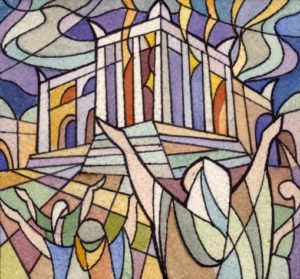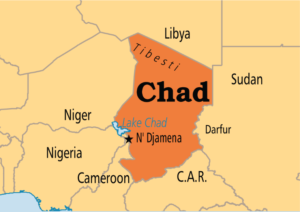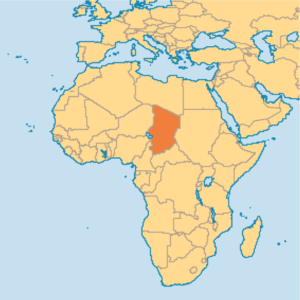We continue to read regulations from the Law pertaining to the remaining journey of the people of Israel as they advance towards and into the Promised Land of Canaan.
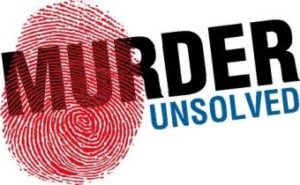 Today’s reading opens with an unsolved murder.
Today’s reading opens with an unsolved murder.
When the murderer is not found, who is to blame? How can the demand for justice be satisfied?
There are several interesting factors that come to light as instructions are given for the cleansing of guilt that has not clearly landed on a known individual.
Here are some observations:
- Murder, in particular, and sin, in general, affect a community.
- The calls for justice for an unsolved crime don’t dissipate by ignoring them.
- A diligent search for witnesses needs to be made so that the leaders of a community can say with a clear conscience “Our hands have not shed this person’s blood, nor did we see it happen.”
- Sin calls for punishment.
- Forgiveness and the expiation (the removal) of all guilt, be it true guilt, assumed guilt, or corporate guilt, must ultimately come from God.
- This expiation comes by means of atonement. Justice can only be satisfied when sufficient payment is made.
- Both the elders and the priests are involved in this cleansing, which pictures the recognition of human responsibility in confession and intercession (1 John 1:7,9).
The Bible gives us an indication that not only individuals are held accountable for their crimes, but, in some cases, guilt can fall upon a community. If the body of a slain person is found lying in the open country and the murderer is unknown, the elders of the nearest town are summoned to make an offering to remove the guilt from their community. This offering involves the sacrifice of a heifer that has not pulled in a yoke. (Notice that this is not the same offering as specified in the once and for all red heifer offering of purification). The leaders are to wash their hands over the heifer and confess their innocence and ask forgiveness on behalf of the community of any shedding of innocent blood.
In this passage, we are reminded that the sacrifice of the heifer is a type of the voluntary death of God’s Son as our perfect Substitute. Like the heifer who had never been yoked to a plow and was taken through an unplowed, unseeded field, Jesus, was never yoked to sin or Satan. He went through life, tempted at all points as we are, yet never engaged in the work of sin. The stream speaks of the running water; the living water of the Word that brings forth the witness of the finished work of Christ that we might experience purification (John 15:3).
Deuteronomy 21:9 (NASB) 9 “So you shall remove the guilt of innocent blood from your midst, when you do what is right in the eyes of the LORD.
There are rather unusual situations described in this chapter. They may be puzzling to our sensibilities. They need to be understood in their historical context.
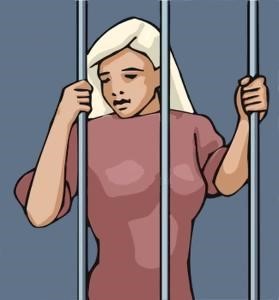 God is not endorsing taking female prisoners of war as wives. Nor is He approving of polygamy, or providing easy rules for divorce. He is not suggesting that Israelites take Canaanite women as wives. Other laws will make that clear.
God is not endorsing taking female prisoners of war as wives. Nor is He approving of polygamy, or providing easy rules for divorce. He is not suggesting that Israelites take Canaanite women as wives. Other laws will make that clear.
Rules and regulations were put in place to ensure a more compassionate treatment of women. Whereas in other cultures female prisoners of war would be abused or killed, this was not to be the case in Israel. If a man marries a female prisoner of war and he decides not to care for her as a wife, she is to go free (implying return to her home country if she so desires). She is not to be sold, treated as a slave, or abused.
If a man has two wives, and one is favored over the other, the inheritance must go to the firstborn son, even if he is the son of the unloved wife. The double portion to the firstborn will be a matter of law and not of favoritism. The Law also has made clear that a man is not to multiply wives (Genesis 2:24 and Deuteronomy 17:17). In the New Testament, this remains the case- “each man should have his own wife, and each woman her own husband” (1 Corinthians 7:2; Matthew 19:3-9; Ephesians 5:31 as well as in the Pastoral Epistles). You may remember that the rights of the firstborn went to Jacob rather than Esau. This was through Jacob’s deceit. God did not approve of the deceit but in His sovereignty, He used this for His purposes. Jacob gave the firstborn privileges to Joseph, the son of his beloved Rachel rather than to Reuben, the son of his first wife, Leah. Again, God sovereignly allowed this for His purpose. These were exceptions by God’s choosing. In Deuteronomy, however, the rule is made plain. The double portion is to go to the firstborn.
Rebellion is a serious sin and in the Old Testament law, it was to be treated as such. The stoning of the rebellious unrepentant son pictures the need “to put away evil”, a phrase used 9 times in the Book of Deuteronomy (Deut. 13:5; 17:7, 12; 19:19; 21:21; 22:21-22, 24; 24:7). Christ came to put away evil, taking the judgment for sin on His own body. The Apostle Paul quotes this command as an illustration of the need for church discipline (1 Cor. 5:13). In the New Testament, we see a contrast in the way a rebellious son is handled in Jesus’ Parable of the Prodigal Son (Luke 15). This is because of the obedience of God’s Righteous Son.
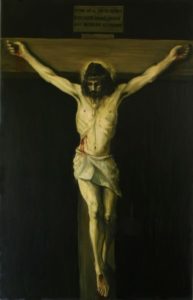 The public execution of a criminal and the display of the body hanging high or impaled on a tree as a warning to others must be regulated so that the body does not remain hanging overnight. Otherwise, the land will be defiled. A person who has committed a crime worthy of death is regarded as under the curse of God’s law. The hanging of that person on the tree is the sign that identifies that person as cursed in the sight of God.
The public execution of a criminal and the display of the body hanging high or impaled on a tree as a warning to others must be regulated so that the body does not remain hanging overnight. Otherwise, the land will be defiled. A person who has committed a crime worthy of death is regarded as under the curse of God’s law. The hanging of that person on the tree is the sign that identifies that person as cursed in the sight of God.
The apostle Paul reminds us that Deuteronomy 21:22-23 point forward to Christ.
Galatians 3:13 (NASB) 13 Christ redeemed us from the curse of the Law, having become a curse for us—for it is written, “CURSED IS EVERYONE WHO HANGS ON A TREE”—
Deuteronomy 22 outlines social responsibilities, including caring for neighbors, such as returning lost things to rightful owners and regulations pertaining to human sexuality.
Deuteronomy 22:5 makes it clear that transvestitism is detestable to the Lord. God made mankind male and female by His choosing and for His purpose.
 Young birds could be taken from the nest, but the mother was to be released, perhaps so she could continue reproducing.
Young birds could be taken from the nest, but the mother was to be released, perhaps so she could continue reproducing.
Rooftops were places of fellowship gatherings. We should protect the place of fellowship in our lives, and in the case of having guests on the roof, put railings around the perimeter to keep people from falling off!
Laws forbidding mixture are a reminder of the need for purity in our lives. Mixed crops and unequal yokes are used as illustrations in New Testament teaching (2 Corinthians 6:14). Wool is gathered from an animal. Linen is made from flax. Wool, when worn in the heat, produces sweat (representing the works of the flesh- the old nature). Linen garments, which were to be worn by the priests, do not. Linen speaks of the righteousness of Christ. Jesus Himself used that analogy when He likened Himself to the seed which falls into the ground and dies to reproduce its life in a resurrection harvest. (John 12:24). The gospel is not to be mixed. There is no room for the flesh to boast. It is a work of God’s righteousness alone!
The reasons for the four tassels were given in Numbers 15:37-41
Numbers 15:37-41 (NASB) 37 The LORD also spoke to Moses, saying, 38 “Speak to the sons of Israel, and tell them that they shall make for themselves tassels on the corners of their garments throughout their generations, and that they shall put on the tassel of each corner a cord of blue. 39 “It shall be a tassel for you to look at and remember all the commandments of the LORD, so as to do them and not follow after your own heart and your own eyes, after which you played the harlot, 40 so that you may remember to do all My commandments and be holy to your God. 41 “I am the LORD your God who brought you out from the land of Egypt to be your God; I am the LORD your God.”
The color blue reminds us that we are citizens of heaven.
Regulations for sexual purity are given in Deuteronomy 22:13-30.
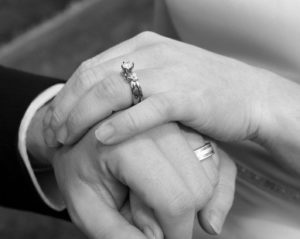 It was important that the children of Israel kept sexually pure as they camped during their journey into the Promised Land. Biblical sexual ethics are important to us as we seek to walk worthy of our calling as the people of God.
It was important that the children of Israel kept sexually pure as they camped during their journey into the Promised Land. Biblical sexual ethics are important to us as we seek to walk worthy of our calling as the people of God.
Adultery and fornication are strictly forbidden in both the Old and New Testaments. Not only are these sins against your own body, but they are sins that can rip apart the fabric of society.
1 Corinthians 6:18 (NASB) 18 Flee immorality. Every other sin that a man commits is outside the body, but the immoral man sins against his own body.
The so-called “acceptable sins” of today are causing deep fractures in our social landscape. They undermine the basic social unit of the family.
Adultery and premarital sex are not to be softly labeled as romantic ‘affairs’, ‘flings’, or ‘rites of passage’. Sex outside of marriage is a violation of God’s will of command. When it is not repented of, it jeopardizes a person’s experience of the kingdom of God (1 Corinthians 6:9).
In Deuteronomy 22, premarital sex is recognized as a sin against the father of the woman involved also. He must be compensated with 50 pieces of silver. And in this case, the man is to take responsibility for the woman he has had sex with and marry her. Furthermore, he is never to divorce her.
Accusation of sexual misconduct is to be taken seriously. Those who make false accusations are to be punished for their libel.
God gave these commands to Israel to prepare them for their inheritance. It is good to be reminded of the high regard that God has for human sexuality and marriage.
Matthew 19:4-6 (NASB) 4 And He (Jesus) answered and said, “Have you not read that He who created them from the beginning MADE THEM MALE AND FEMALE, 5 and said, ‘FOR THIS REASON A MAN SHALL LEAVE HIS FATHER AND MOTHER AND BE JOINED TO HIS WIFE, AND THE TWO SHALL BECOME ONE FLESH’? 6 “So they are no longer two, but one flesh. What therefore God has joined together, let no man separate.”.
READING FROM THE NEW TESTAMENT – Luke 9:51-10:12.
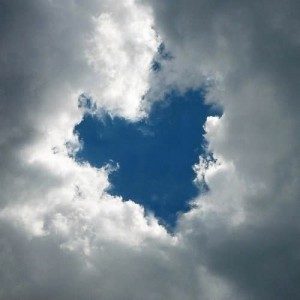 Verse 51 reminds us that Jesus had ‘home’ in mind as He resolutely set out for Jerusalem. That ‘home’ was not Jerusalem itself, but heaven and the joyous prospect of a New Jerusalem. Many “go up” to Jerusalem. It is the city on a hill. But Jesus anticipates being “taken up” to heaven after finishing the work of redemption.
Verse 51 reminds us that Jesus had ‘home’ in mind as He resolutely set out for Jerusalem. That ‘home’ was not Jerusalem itself, but heaven and the joyous prospect of a New Jerusalem. Many “go up” to Jerusalem. It is the city on a hill. But Jesus anticipates being “taken up” to heaven after finishing the work of redemption.
Luke 9:51 51 When the days drew near for him to be taken up, he set his face to go to Jerusalem.
James and John, nicknamed, the sons of Thunder, were eager to ask God to send down fire upon those who refused to welcome Jesus into their villages. But Jesus rebukes them for their foolish zeal. He Himself would take the wrath of God against human unbelief on His own body on the cross.
Jesus calls us to follow Him. We might dare to imagine that we can do this in our own strength. But this also would be foolish. We cannot identify with Jesus in life, nor follow Him until we are first identified with Him in His death. This is why we must first take up our cross.
There is a contrast between the nature of Jesus and the nature of unregenerate man. We are very much interested in making our homes here on earth. Jesus had no place to lay His head on earth (Luke 9:58). His head was continually resting in intimate fellowship with the Father in heaven.
John 1:18 (NASB) 18 No one has seen God at any time; the only begotten God who is in the bosom of the Father, He has explained Him.
The affections of those who are spiritually alive will be on things above and not on things below (Colossians 3:1-2). Therefore, Jesus says, let those who are spiritually dead bury their own dead.
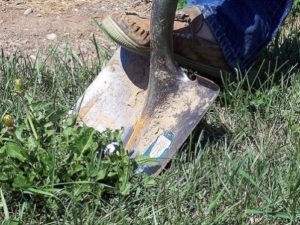 This is not a prohibition against attending funerals, but it is a clear teaching that the lifestyle of a disciple should demonstrably indicate that their treasure is in heaven not on earth. We are to demonstrate that we are alive to God and things eternal.
This is not a prohibition against attending funerals, but it is a clear teaching that the lifestyle of a disciple should demonstrably indicate that their treasure is in heaven not on earth. We are to demonstrate that we are alive to God and things eternal.
We must not allow ourselves to be distracted from submission to God’s rule, not even by our natural affections for family and friends.
In Luke 10, Jesus sends out the 72 disciples as 36 pairs to all the towns and places he planned to visit. People needed to be prepared in these target areas before His arrival. Special acts of healing brought recognition to the fact that Jesus, the prophesied Messiah-King, had arrived and was on His way (10:8). If people turned away from Him, it would be an indication that they love darkness more than light, and a wrathful judgment would await them.
Luke 10:11-12 (NASB) 11 ‘Even the dust of your city which clings to our feet we wipe off in protest against you; yet be sure of this, that the kingdom of God has come near.’ 12 “I say to you, it will be more tolerable in that day for Sodom than for that city.
READING FROM PSALMS
This Psalm looks back to the destruction of Jerusalem and the temple by the Babylonians under Nebuchadnezzar. It also anticipates the desecration of the temple by Antiochus Epiphanes (170-168 BC), the destruction of the temple by Titus of Rome in 70 AD, and the future abomination and desolation of the temple by the Antichrist prophesied by Daniel (Daniel 9:26), Jesus (Matthew 14:15), the Apostle Paul (2 Thessalonians 2:3-4), and the Apostle John in Revelation 13:14.
(The picture is of the stained-glass window designed by Israeli artist David Ascalon)
Psalm 74 describes a time of great spiritual discouragement. There seems to be no more signs indicating God’s presence and favor. The prophets are gone (or silenced) and no one can tell us when it will end (Psalm 74:9; See Ezekiel 3:26). People have lost their vision of God’s promise in Christ.
Verses 12-15 acknowledge God’s power manifested in the past. Verses 16-17 acknowledge His sovereignty over all.
Psalm 74:16-17 16 Yours is the day, Yours also is the night; You have prepared the light and the sun. 17 You have established all the boundaries of the earth; You have made summer and winter.
The psalm closes with a prayer. Psalm 74:18 -23 is a prayer for mercy for His name’s sake. He reminds the Lord of His covenant promise to His people.
When we remind God of His covenant promises in prayer, we are reminding ourselves of His faithfulness.
Psalm 74:21 (NASB) 21 Let not the oppressed return dishonored; Let the afflicted and needy praise Your name.
O faithful God! O faithful God! You lift us up and You uphold our cause!
Our cause is His cause. His cause is our cause! Arise O God! Plead Your own cause!
READING FROM PROVERBS- Proverbs 12:11
 Proverbs 12:11 (NASB) 11 He who tills his land will have plenty of bread, but he who pursues worthless things lacks sense.
Proverbs 12:11 (NASB) 11 He who tills his land will have plenty of bread, but he who pursues worthless things lacks sense.
Here is a good life management principle. Spend your time in productive work. Don’t waste your time in that which does not bring benefit to others. You don’t want an empty cupboard, an empty heart, or an empty head!
PRAY FOR THE NATIONS (From the Prayer Guide “Operation World”)
Republic of Chad
Africa
Geography
Desert in the north, dry grassland in the center, thick bush in the south. The sea is 1,000 km distant.
Population: 11,506,130 Annual Growth: 2.81%
Capital: N’djamena
Urbanites: 27.6%
HDI Rank: 175 of 182 (UN Human Development Reports 2009)
Peoples
Peoples: 141 (51% unreached)
Official language: French (only spoken by the educated), Arabic (perhaps 30% of Arabic speakers are fluent) Languages: 133
Religion
Largest Religion: Muslim
| Religion | Pop % | Ann Gr | |
| Christians | 4,425,258 | 38.46 | 3.2 |
| Evangelicals | 1,161,358 | 10.1 | 3.2 |
| Muslim | 6,079,839 | 52.84 |
Answer to Prayer
The number of Muslims seeking to know more of Christ continues to grow. Groups of believers from Muslim backgrounds are slowly beginning to multiply. The development of culturally helpful resources such as chronological Bible storying and Chadian Arabic Christian radio makes a huge difference.
Challenge for Prayer
Freedom of religion is a precious reality. The otherwise flawed regime at least attempts to preserve this, but it faces rebel threats that are often strongly Islamist and sponsored by foreign, hard line Islamic groups and nations. The south, previously victim of marginalization, is increasingly courted as a counterbalance to this threat. Pray that, while current freedoms still exist, Christians might fully utilize the opportunities.
PRAYER: Gracious God, You hear the cry of the needy and the oppressed! You honor Your covenant and the perfect work of Your Holy Son. You are a faithful God. Uphold Your cause and bring honor to Your Name in the way You answer the prayers of Your people. Do not let the enemy glory in our foolishness. Arise O Lord and vindicate Your Name. May Your Word run and be glorified. We thank You for renewing our mind with Your truth. By Your Word and Spirit keep us on the path of obedience. In Jesus’ Name. Amen.
Pastor David

